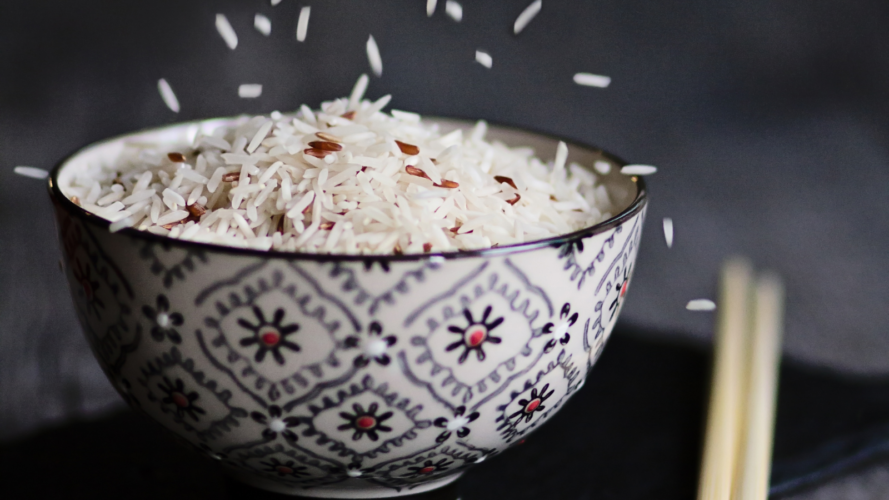Over different matters being a reason for war between countries, “Basmati rice” was a major element of the battle between India and Pakistan. It is a decade-long dispute between the countries for claiming the geographical indication of Basmati in the European markets. This rivalry mainly started when India registered its GI tag in the European Union (EU) and Pakistan objected to the same.
What is a Geographical Indication?
Geographical Indications (GIs) are suggestive of the reputation, quality, or other characteristics that a particular product has, due to its geographical origin. They can either be agricultural goods, natural goods, or manufactured goods. In the case of manufactured goods, they need to be made in a particular geographical area (origin).
Aims of EU’s Quality Schemes
EU’s quality policy aims to protect the names of specific products to promote their unique characteristics, linked to their geographical origin as well as traditional know-how. Product names can be granted a ‘geographical indication’ (GI) if they have a specific link to the place where they are made. The GI recognition enables consumers to trust and distinguish quality products while also helping producers to market their products better.
Products that are under consideration or have been granted GI recognition are listed in geographical indication registers. The registers also include information on the geographical and production specifications for each product. Recognized as intellectual property, geographical indications play an increasingly important role in trade negotiations between the EU and other countries. Other EU quality schemes emphasize the traditional production process or products made in difficult natural areas such as mountains or islands.
Generally, a product can be granted a GI protection under a larger ambit, which includes Protected Designation of Origin (PDO), Protected Geographical Indication (PGI) and Traditional Specialty Guaranteed (TSG). PDO status can be granted to a product that has been produced, processed and prepared in a given geographical area using recognized know-how. The quality and characteristics of such products are essentially due to the geographical environment, like a raw material produced in the area. The production of a product with a PGI must be closely linked to its geographical origin in at least one of the stages of production, processing or preparation, giving the product a special character. This form of protection is suitable for products which have a good reputation and are processed in a specific geographical area using traditional local methods. Some of the raw material for the product can be acquired from outside the area. The TSG protection does not refer to the origin of the product but aims to highlight its traditional composition or means of production. A product name that has been granted a certificate of specific character can be produced anywhere in the EU but it has to be produced according to the registered production method.
Protected Geographical Indication (PGI) is a status awarded by the European Commission that protects and promotes named regional food products that have a reputation or noted characteristics specific to that area. The PGI framework was launched by the EU in 1993 offering legal protection to recognized products against imitation across the EU. It acts in the same way as a Trade Mark, preventing manufacturers from outside a region from imitating a regional product. Being awarded the status demonstrates that the product is produced and processed to agreed standards and specifications recognized at the EU level and that the product has a defined regional connection. The PGI status prevents unfair competition and the misleading of consumers by non-genuine products which may be of inferior quality or different flavor.
Basmati Rice- Origin and the battle between India and Pakistan
Basmati is a variety of long, slender-grained, aromatic rice which is traditionally grown in India, Pakistan, and Nepal. Even though many countries domestically use basmati rice, it is geographically exclusive to certain districts of Pakistan and India. It is also used as an ingredient in many cuisines across the globe. In the year 2008, both India and Pakistan discussed submitting a joint application to register basmati as GI in the European Union. Later this plan was dropped following the 2008 Mumbai terrorist attacks. The Agricultural and Processed Food Products Export Development Authority of India (APEDA) filed for domestic GI status of Basmati and the application was granted in 2016 under the Geographical Indications of Goods (Registration & Protection) Act, 1999. India, in July 2018, had filed for PGI status for Basmati before the EU’s Council on Quality Schemes for Agricultural and Foodstuffs to claim exclusive rights over the commodity in the EU. A Notice of Opposition was filed by Pakistan, the second-largest exporter of Basmati against India’s claim over Basmati in late 2020.
The main grounds for opposition were that both Pakistan and India produce Basmati, and, thereby it was a joint product of both the countries. The laws demand that a product has to be protected by the country’s GI laws before it may be registered on the international market. In 2021, Pakistan announced that Basmati was granted GI status under the Geographical Indications (Registration and Protection) Act 2020. The European Commission asked India and Pakistan to come to some solution through talks but no solution was reached. As a result, the issue is still pending. The issue might now find reconsideration in Europe’s FTA talks with India.
Protecting Basmati Rice: Why is India Concerned About Geographical Indication (GI) Protection?
Given the high premium that basmati, an export-oriented product, fetches in the international market, there have been frequent disputes over granting the protected status to rice that may have been bred from basmati varieties and has the same qualities but isn’t grown in the historical basmati-growing belt. In India, for example, the Madhya Pradesh government has been lobbying the central government for its basmati rice varieties to be granted GI status, even taking the matter to the Supreme Court. The All India Rice Exporters’ Association (AIREA) is opposed to this, on the basis that it compromises basmati integrity. APEDA itself had stated that GI status is strongly linked to a particular geographical region. Based on this, AIREA has argued that granting MP’s request would open the door to other regions within India as well as rival rice exporters like China and Pakistan to grow basmati varieties anywhere in their territories, thus diluting the power of the basmati brand.
Recent Development
The Australian government has rejected India’s application for exclusive rights to basmati rice as it is not only grown in India. This was mainly when the conflict was undecided between India and Pakistan. However, India moved to the federal courts of Australia to appeal against the decision. Islamabad was another country to oppose India as according to them basmati was a rice variety that was growing in both South Asian countries.
Conclusion
The matter of fact is that whosoever wins this food conflict or rice conflict has the true monopoly over the Basmati export to the EU. The current rejection of the Basmati GI tag by Australia is a missed opportunity by India to incorporate Basmati rice GI protection in the first round. India needs to take this up in the second stage. Basmati exports from both countries (Indo-Pak) will be heavily disrupted until the conflict is resolved by an amicable agreement. The most effective solution is obviously for the countries to submit a joint application. Joint ownership is a practical and mutually-beneficial option since India and Pakistan are the only two Basmati rice producers in the world. But we cannot forget the fact that both countries making a joint application has very less practicability concerning their political relations.
If the balance tips in favor of India, the same will have immense benefits for its economy as India would become the primary exporter. However, both countries share the Basmati rice-growing zone. In India, Basmati is grown in seven states and Union Territories. Pakistan has its own Basmati-growing area. A GI tag can be filed internationally only when one has GI laws in their country and so far Pakistan had lacked this provision, which was an advantage for India. However, recently Pakistan has enacted a GI act and can thus pose a challenge to India. However, while both countries may try to settle the dispute through political or arbitrary influence, the same would be unfair or to a large extent unjustifiable. Hence Pakistan or India lobbying other countries for personal benefit will not be a clean win. It will be interesting to map the developments under this case, as the same has high economic and political benefits for the countries involved.
Author: Febin P




